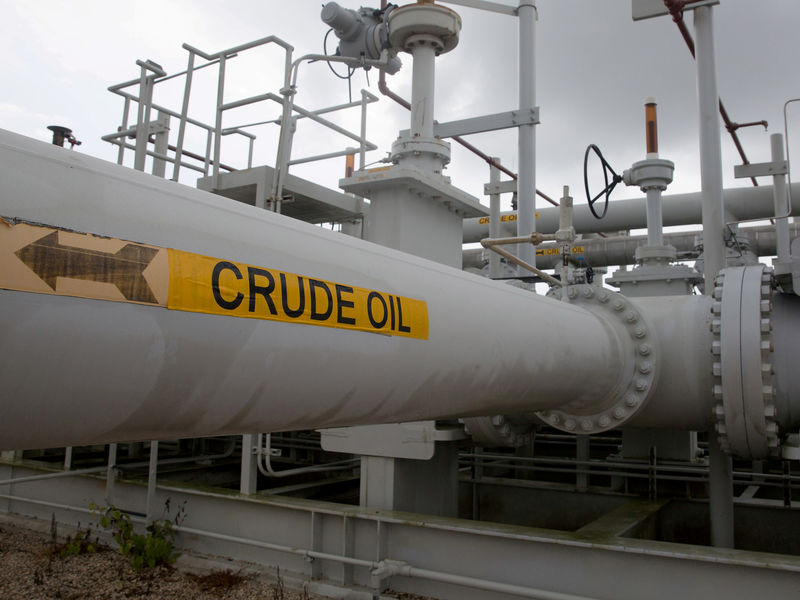By Henning Gloystein
SYDNEY/SINGAPORE (Reuters) - Oil prices rose on Friday as turmoil in Venezuela triggered concerns that its crude exports could soon be disrupted.
Washington on Thursday signaled it could impose sanctions on Venezuela's oil exports as Caracas descends further into political and economic turmoil.
Brent crude oil futures were at $61.62 a barrel at 0755 GMT, 53 cents, or 0.9 percent, above their last close. At one point earlier on Friday, the international benchmark crude rose as high as $61.92 a barrel.
Brent, however, has shed about 1.8 percent this week and was on track to post its first week of losses in four weeks.
U.S. West Texas Intermediate (WTI) crude futures were at $53.70 per barrel, up 57 cents, or 1.1 percent.
Amid violent street protests, Venezuela's opposition leader Juan Guaido declared himself interim president earlier this week, winning backing from Washington and large parts of Latin America, prompting Nicolas Maduro, the country's leader since 2013, to break relations with the United States.
(U.S. oil output and storage levels: https://tmsnrt.rs/2GYfhAi)
"The oil market is partially pricing in the risk to Venezuela's crude production, which has been plummeting in recent years and currently languishes just above 1 million barrels per day," Vandana Hari of Vanda Insights said in a note on Friday.
Fundamentally, however, global oil markets are still well supplied, thanks in part to surging output in the United States, where crude production rose by more than 2 million barrels per day (bpd) last year to a record 11.9 million bpd.
Record U.S. production would likely offset any short-term disruptions to Venezuelan supply due to possible U.S. sanctions, Britain's Barclays (LON:BARC) on Thursday said in a note. The bank cut its 2019 average Brent crude oil forecast to $70 a barrel, down from $72 previously.
The surge in U.S. output has resulted in swelling U.S. fuel inventories.
Gasoline stocks climbed for an eighth consecutive week in the week to Jan. 18, by 4.1 million barrels to a record 259.6 million barrels, the U.S. Energy Information Administration (EIA) said in a weekly report on Thursday.
Crude inventories rose by 8 million barrels.
The high supplies come as demand may also start to stutter amid a global economic slowdown which is likely to dent fuel consumption.
An escalating trade dispute between the United States and China and tightening financial conditions around the world have hurt manufacturing activity in most economies and dragged China's growth last year to the weakest in 28 years.

In a Reuters poll of more than 500 economists taken this month, growth this year was cut for 33 of 46 economies the respondents were asked about.